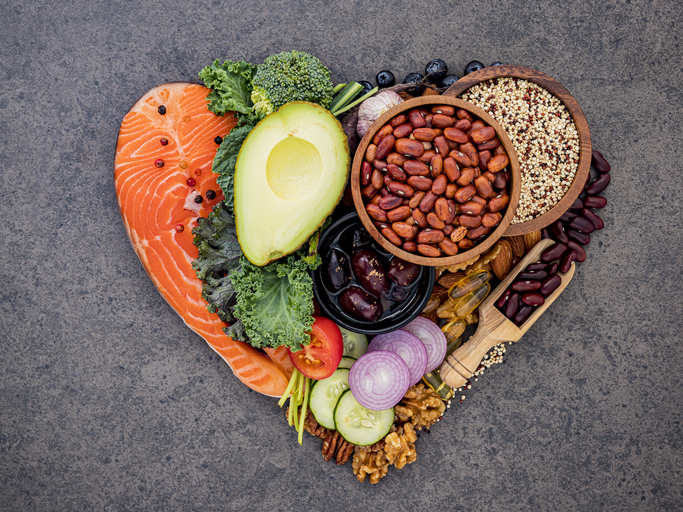5 Healthy Fats to Include in Your Diet

Too much of anything isn’t good for the body. I once heard Heinen’s Chief Medical Officer Dr. Todd Pesek say “everything in moderation, including moderation”. I love that statement because it points to the fact that life truly is about balance.
Speaking of moderation, let’s talk about fat. Specifically dietary fat. You see, right there is a problem! The word fat can trigger a negative reaction, can’t it? Think excess body fat. These downward feelings tend to carry over when we think of dietary fat. After all, it’s the same exact word!
But you see, having a certain level of body fat is critical to the overall health of your body. It offers many benefits, including: balanced hormone levels, a healthy metabolism, vitamin storage, balanced blood sugar, temperature regulation, and brain health.
On the flipside carrying excess body fat—especially around the midsection—can increase your risk for a number of diseases. Eating too much fat can cause problems too, especially when it’s in the form of refined vegetable oils like canola, corn, safflower, soybean, and sunflower oil.
These oils contain vast amounts of omega-6 polyunsaturated fats, which have an inflammatory effect in the body. Too much inflammation is the very culprit of some of our most pressing diseases in this country, like heart disease, cancer, and autoimmune disorders.
A couple of exceptions to these oils are expeller-pressed, high oleic sunflower and safflower oils because they are made up of 80% healthy monounsaturated fat.
The 5 Healthiest Fats to Include in Your Diet
Just like a certain amount of body fat, having some fat in your diet is essential too because it gives you energy, supports cell function, protects your organs, and produces important hormones. Again, moderation is key.
Following are good sources of healthy fats like monounsaturated fat, omega-3 polyunsaturated fatty acids, and medium-chain triglycerides (a unique kind of high-antioxidant saturated fat found in coconut oil).
- Avocados: rich in oleic acid, a monounsaturated fat that supports heart health
- Nuts and nut butters: almonds, Brazil, cashews, hazelnuts, pecans, pistachios, and walnuts
- Olives: made up of 95% fat, mostly as the monounsaturated oleic acid
- Seeds: chia, flax, hemp, pumpkin, and sesame
- Unrefined oils (cold-pressed or expeller-pressed):
- Almond oil- best for cold applications like salad dressings or drizzled over cooked veggies
- Avocado oil- ideal for medium-heat cooking (up to 375 degrees); refined expeller-pressed avocado oil can be heated up to 500 degrees
- Coconut oil- good for baking and medium-heat cooking (up to 350 degrees); expeller-pressed refined coconut oil can be used for high-heat cooking (up to 400 degrees)
- Extra virgin olive oil- good for medium-heat cooking (up to 375 degrees); makes a wonderful salad dressing
- Flax seed oil- do not heat; must be refrigerated
- Walnut oil- best used in cold sauces or drizzled over salad; do not heat
Be sure to store oils in dark bottles and in a cool dark place away from light and heat. That’s right, get them off of your kitchen counter!
Food for Thought …
With a little bit of planning, you can benefit from the goodness of these fats at every meal. For breakfast, peel and seed a small avocado and slice on top of omelets or sprouted toast. At lunch, top off your salad with sliced olives and a drizzle of extra virgin olive oil. When preparing dinner vegetables, sauté them in a little avocado oil and top with sprouted nuts or seeds. And for a sweet treat, enjoy a dark chocolate-covered Cashew Butter Ball. Made with Fx-approved ingredients like Heinen’s fresh ground cashew butter, oats, and dark chocolate, these tasty little gems will make a lovely addition to your holiday cookie tray!


